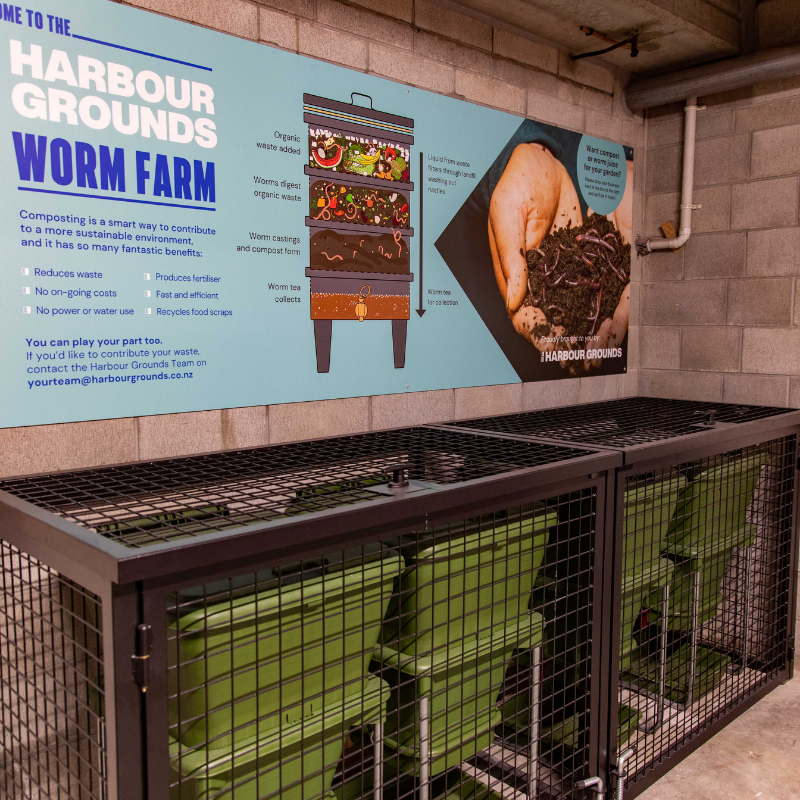OUR NEW HARBOUR GROUNDS WORM FARM
This month we installed 4 new bins at the bottom of 22 Viaduct Harbour Ave near the lifts. What might look like a normal refuse bin at first glance will in fact, be home to 15,000 – 20,000 special composting worms. It is our first Harbour Grounds worm farm.
We chatted to the inventor of the worm farm, Ben Bell, from Hungry Bins to discover how vermiculture (worm farming) helps us achieve our sustainability goals.
What is a worm farm?
A worm farm is a safe, clean, and convenient way to convert food waste into something useful. In a commercial environment hundreds of kilos of compostable organics can be generated over the course of a week – food scraps, leftover catering, coffee grounds, eggshells – the list goes on. This waste normally ends up in the office bin and ultimately in a landfill. The worm farm feeds this waste to the worms who then happily convert it into a fantastic natural, organic fertiliser, and plant food.
“Sending organic waste to the landfill is not sustainable,” says Ben. “It is expensive to collect and transport and once at the landfill it produces harmful greenhouse gases and the nutrients it contains cannot be returned to the environment.”
Every 1 calorie of food takes 10 calories of fossil fuel energy to grow
Every 1 calorie of food takes 10 calories of fossil fuel energy to grow
How do we keep our worm farm working?
The worms in a worm farm are not your common or garden earthworm. They are species that you normally find on the forest floor and are adapted to break down organic matter quickly. These worms have exotic names like Tiger Worms, Indian Blue Worms, Red Wigglers and Brandling worms all of which are found in New Zealand soils. “We simply ensure they are fed regularly and are kept warm and damp. Nature does the rest.” Ben says.
Return, Reduce, Reuse
A worm farm turns a $350/tonne rubbish problem into a valuable commodity. The fertiliser and compost return nutrients to the soil, improving its calibre, and ability to produce healthier plants.
The worms can break down up to 2 kilos of food waste a day into compost.
“Within one month this rich compost can be used to enrich your soil and worm tea is ready to be harvested within a week. Worm tea is a little like a cordial. Packed with nitrogen, it can be watered down and used as a general plant food and conditioner.”
Want to get involved?
If you would like some worm juice for your home garden, or arrange a visit to view the worm farm, please contact us yourteam@harbourgrounds.co.nz






